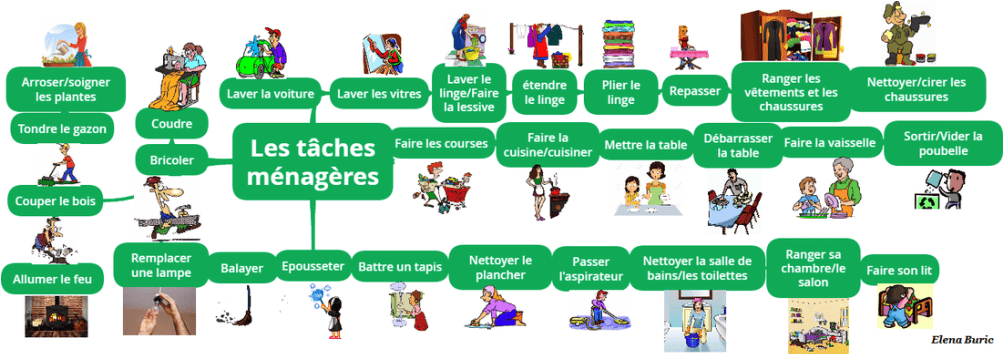Does a good manager have the soul of a good housewife? Let’s talk about it!
From Blog Eve Magazine – July 18, 2023
You have not noticed that the words «manager» and «housewife» sound alike? It is not the result of chance, but of a common etymology: the Italian maneggiare, to which we also owe the name «manège» and the verb «manier». And if we go back even further, all these terms are derivatives of the Latin manus: the hand. Yes, manager, it’s literally driving with your hand. This is what the conductor does when he conducts the musicians; what the parent does with the child he is raising; what the person who runs the house does.
Why an anglicism so well tolerated in the language of Molière?
Something’s bothering us anyway. Why did France, so attached to the language of Molière and so anxious to remove anglicisms from the current vocabulary, so easily adopt the word «manager» to designate the individual who leads a team? And why not spare her?
Let’s see what the Dictionnaire de l’Académie française has to say, on the page of its recommendations to replace Anglosaxon imports with French terminologies. Well, nothing at all! Except that if necessary, we can write manager and, in box that “The feminization of the names of professions and functions developing in use, as noted in the report of the French Academy made public on March 1, 2019, it should be noted that the female form manager also meets.”
The “framework”, a military legacy
Let’s continue our investigations by consulting other dicos. And there, we are proposed “senior or executive officer”. «Cadre», therefore, would have been preferable to household, when in the 1930s, the function was installed in companies.
But where does this «executive» who has nothing linguistically shared with his cousin Anglosaxon the «manager», whatever they do more or less the same job? The «framework» comes from military grammar: it is the name given to the table on which are indicated the ranks of the army in the nineteenth century. French managers, know it, your ancestors are not brave housekeepers, but officers and generals who command the troops.
If the connotation was flattering at the time of the captains of industry, is it still so adapted to the management of today?
A host of soft-skills in the/ home and history
If this is not the case, would it be in the manager’s interest to reconnect with the housewife, at a time when she is no longer this caricature of advertising target looking like a housewife a little gourde or frankly submissive?
To clarify this question, let us dive back into a historical book, the very first treatise on morality and domestic economics written in the fourteenth century: Le grand ménagier de Paris.
We forget the very dated dimension of good advice to the young wife to make herself pleasant to her husband in all kinds of ways. But we remember the «soft-skills» before the letter that the book highlights: the sense of gratitude (knowing how to compliment and thank), the ability to surround oneself, humility, curiosity, kindness, respect for the right to error, the art of knowing how to tell the other what is wrong (feedback, in short), perseverance, the keys to being understood when ordering tasks from others…
No doubt, today’s manager has a lot to learn from the housewife!
Marie Donzel, for the webmagazine EVE
The views expressed by the authors of videos, academic or non-academic articles, blogs posts, academic books or essays ( «the material») are those of their author(s) and/or author(s); they do not bind the members of the Global Wo.Men Hub, which, among themselves, do not necessarily think the same thing. By sponsoring the publication of this material, Global Wo.Men Hub believes it contributes to useful societal debates. Material could therefore be published in response to others.







Commentaires récents